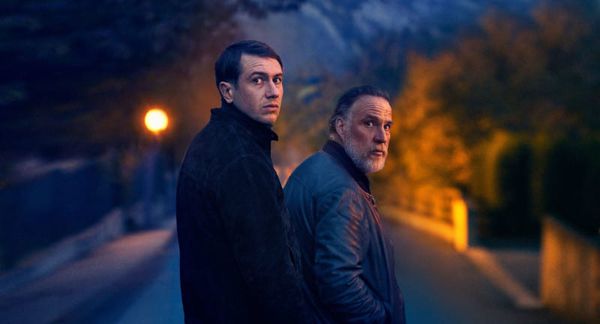Eye For Film >> Movies >> The Night Of The 12th (2022) Film Review
The Night Of The 12th
Reviewed by: Amber Wilkinson

It’s clear from the outset that the murderer in Dominik Moll’s true crime procedural will never be found as an intertitle notifies us that 20% of murder investigations in France go unsolved. But while a specific killer may not be unmasked, toxic masculinity and its co-conspirator the patriarchal society stand in the dock - and the case against them is damning.
Clara Royer (Lula Cotton-Frapier) is a pretty typical 21-year-old, although we get to know her in person only briefly, as she leaves a friend’s house in the small hours, enthusiastically recording a voice message on her phone, unaware her murderer is lying in wait. It’s a premeditated and horrific crime, brought home by Moll in a way that feels bleak without being voyeuristic. Based on part of Pauline Guéna’s non-fiction book Une année à la PJ - concerning the workings of the police judiciaire (a sort of detective hive off from the regular gendarmerie), Moll and regular script collaborator Gille Marchand move the crime from Paris to Grenoble.

The relocation to a rural area, heightens the senselessness of it and, as the crime progresses, also suggests that attitudes surrounding women are nationally embedded. Yohan (Bastien Bouillon) and Marceau (Bouli Lanners) are assigned to the case, one the newly installed chief of the detective squad, the other, his long-time partner and a craggy veteran, whose home life is a mess. As they dig into the suspect list, it turns out that Clara had an active sex life, something that comes under scrutiny, making us acutely aware that though she is the victim, she will forever be trapped in the judgement of others as a result.
All the men Clara was involved with are awful in a rainbow range of unpleasant flavours ranging from one who sang a rap about torching her to one whose amused response to the cops’ questioning is unnervingly sinister. Marceau points out Yohan’s cycling trips to the local velodrome make him look like a “hamster” in a wheel but the police aren’t shown to be much better as the weeks grind on without a result.
There’s latent sexism in the noticeably all-male squad room, while both Yohan and Marceau start to get too close to the case for different reasons. This grind of policing drama might drag for those expecting a crime thriller but it has a sharp point to make about society in general. As cops search for a motive, her friend Nanie (Pauline Serieys) notes that the reason is simple, it was “because she was a girl”. The spare scoring from Olivier Marguerit - occasionally offering a chorus of female voices - fits the film’s sombre mood, while cinematographer Patrick Ghiringhelli puts the contrast between cool blues and pools of orange, a reminder of the crime, to good use
Although there's a grimness to this film - which won a clutch of Cesars including best film - it offers a slight hopefulness as it reaches its final act. While the culprit may still be at large, there are signs of change more generally. A woman, Nadia (Mouna Soualem making her presence felt in her small role), has joined the squad and a female judge is also taking an interest in ways, the film hints at, a male member of the judiciary never would. A “man's world” finally shifting a little on its axis.
Reviewed on: 24 Mar 2023

















